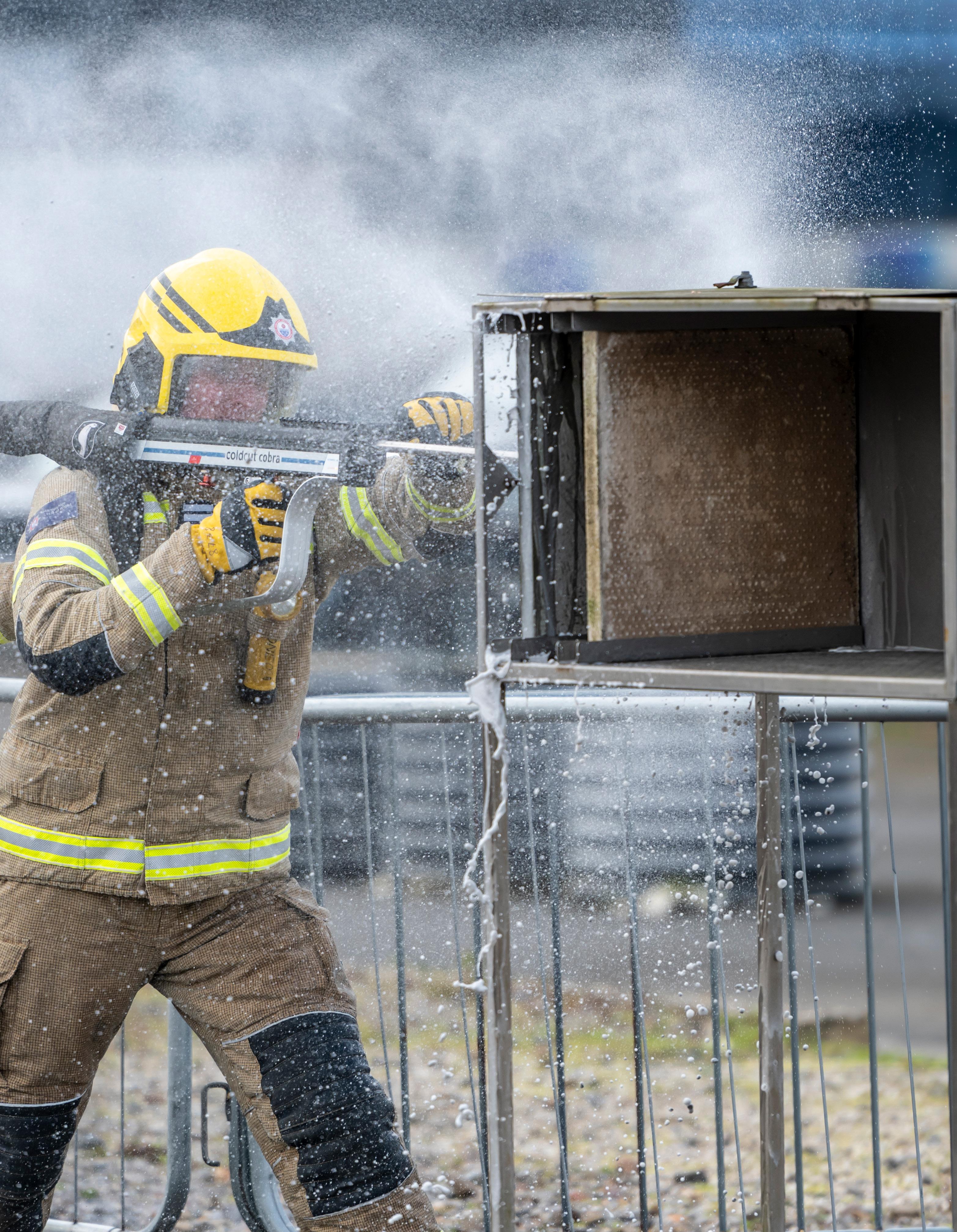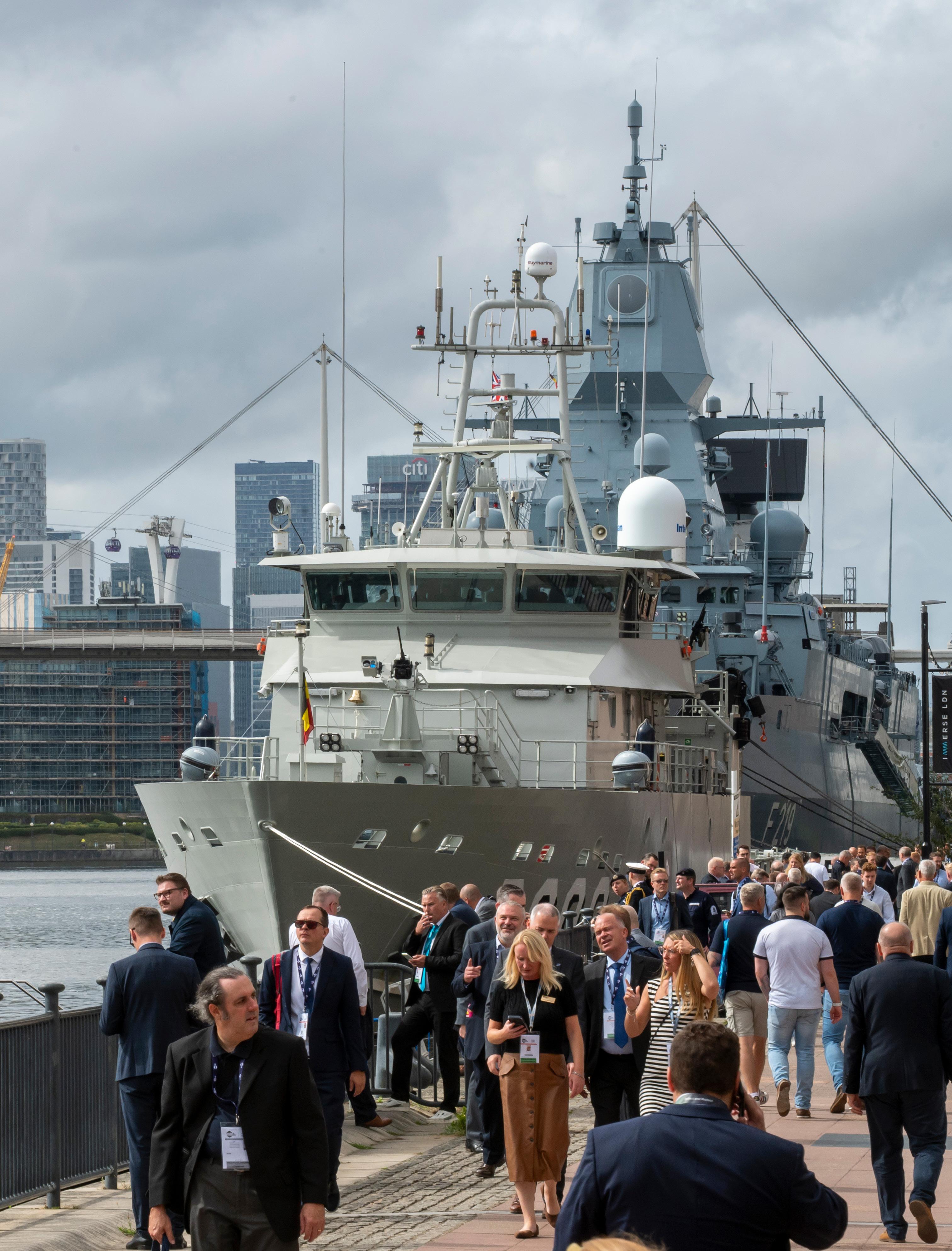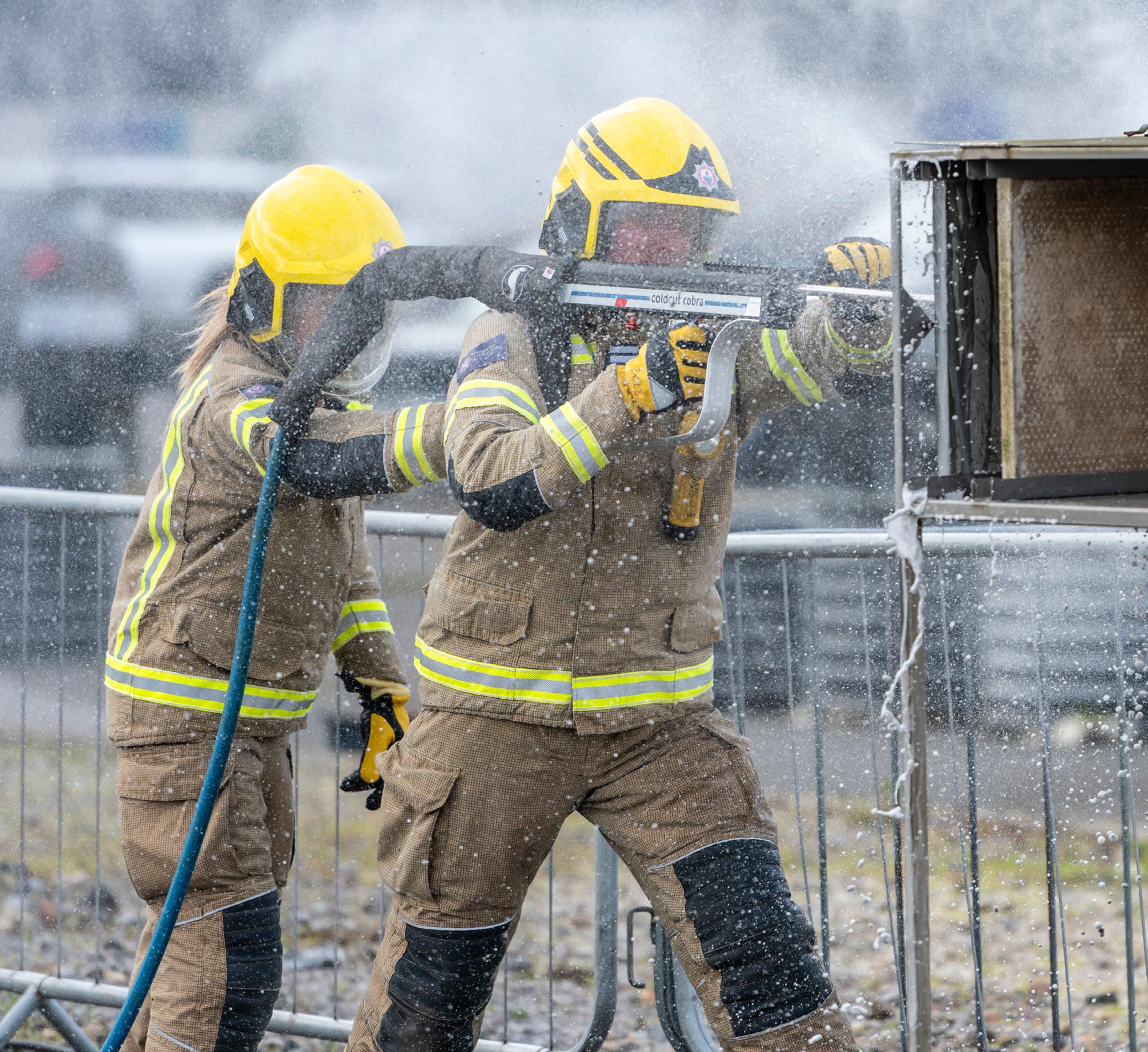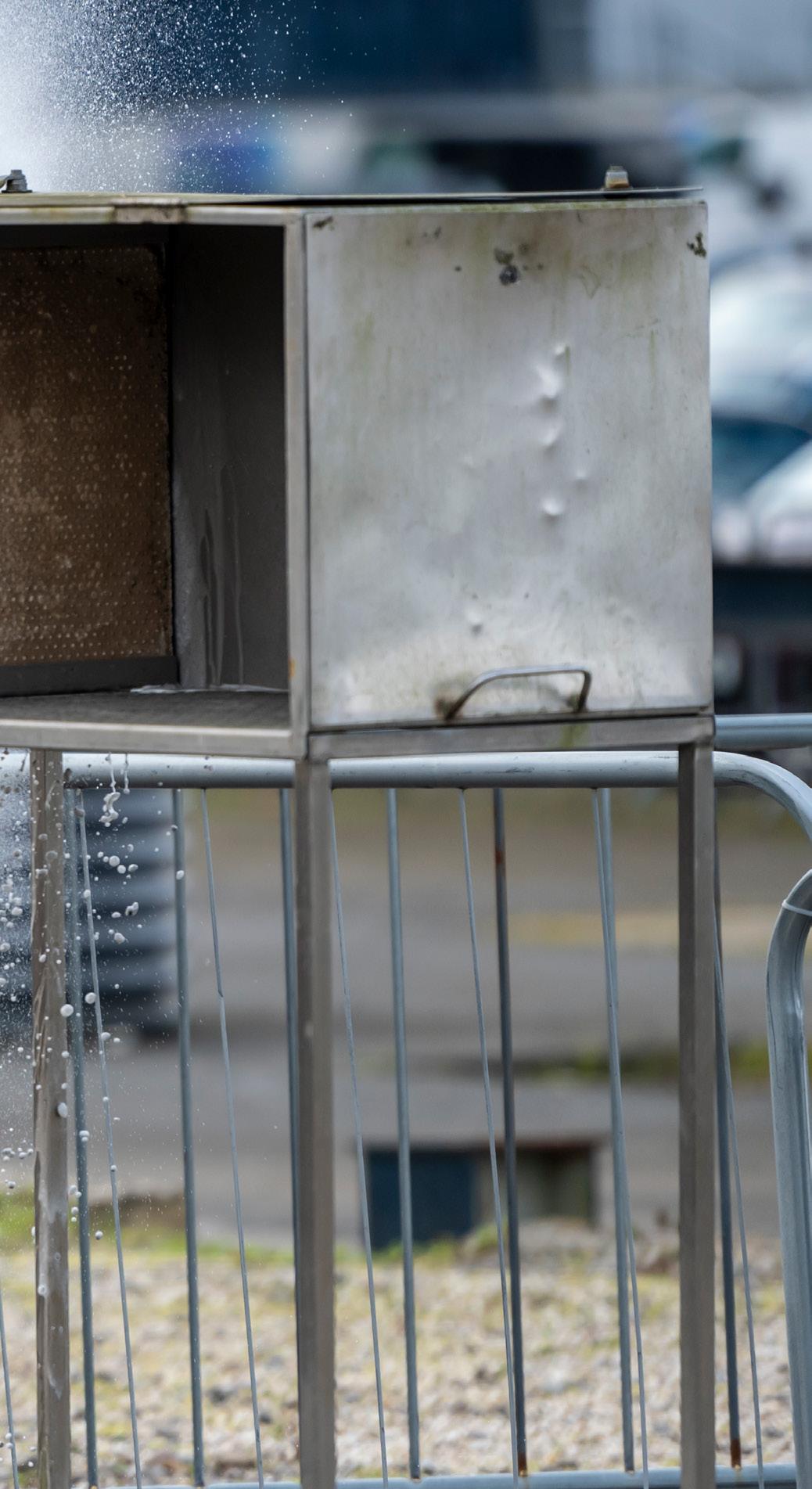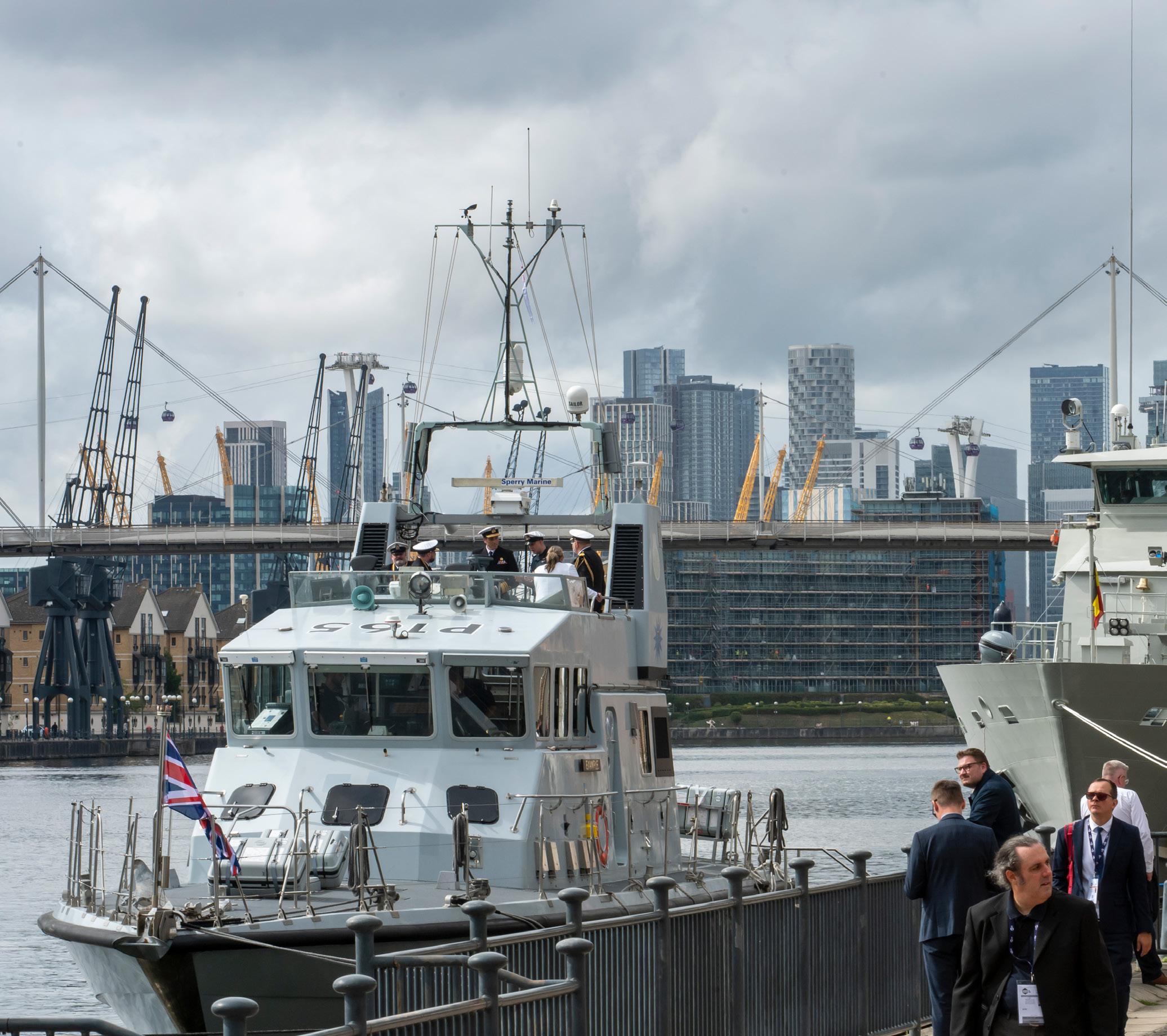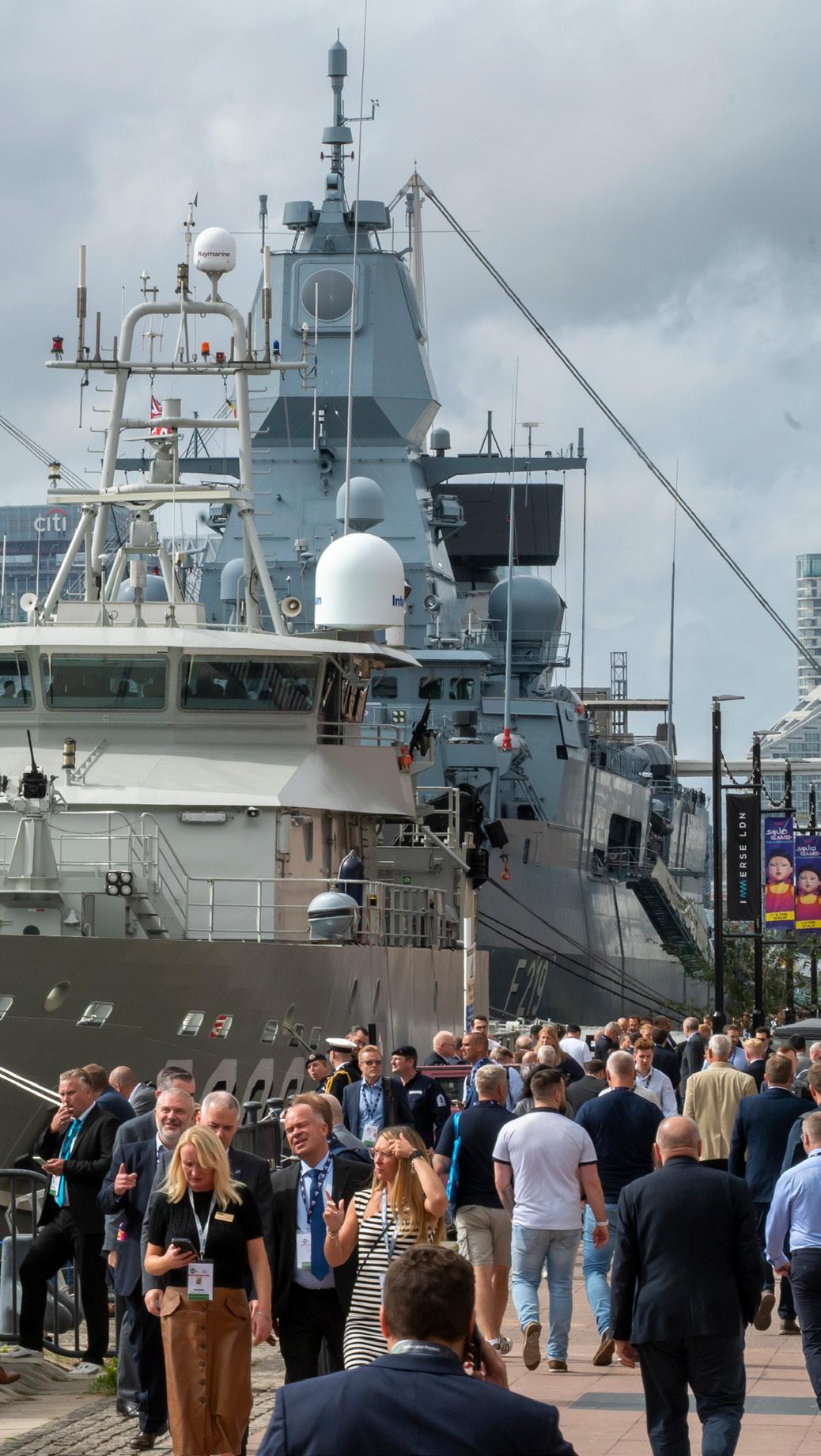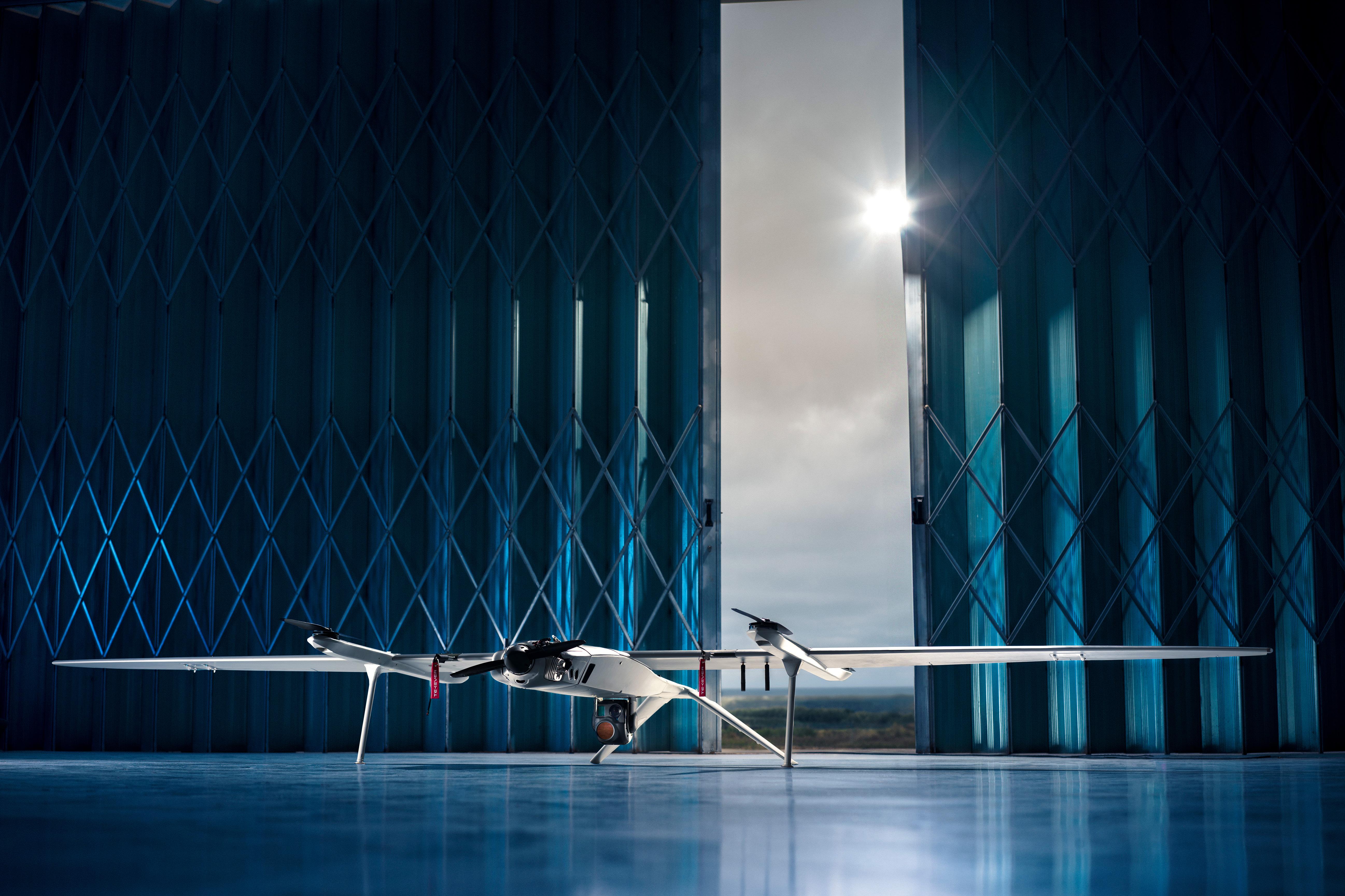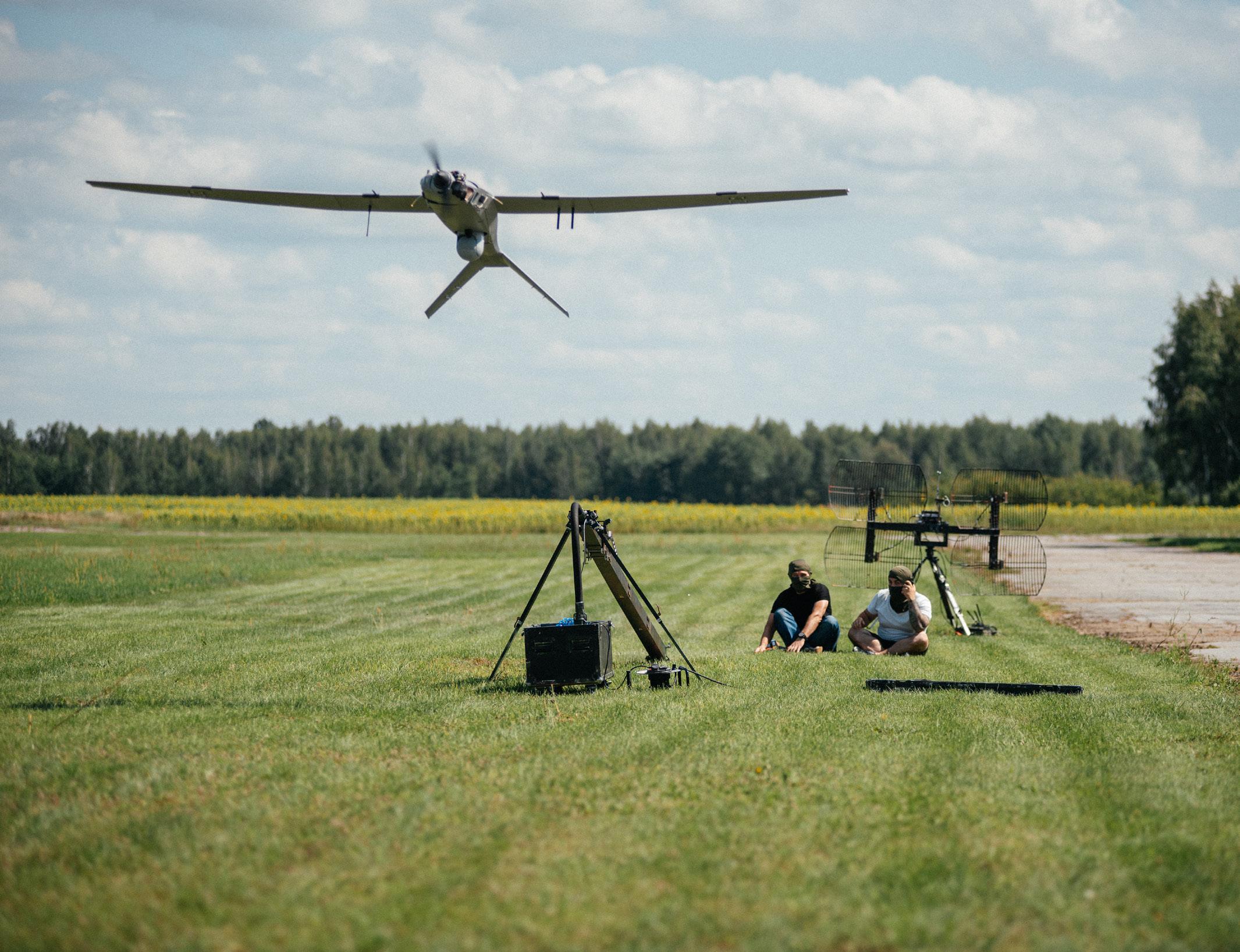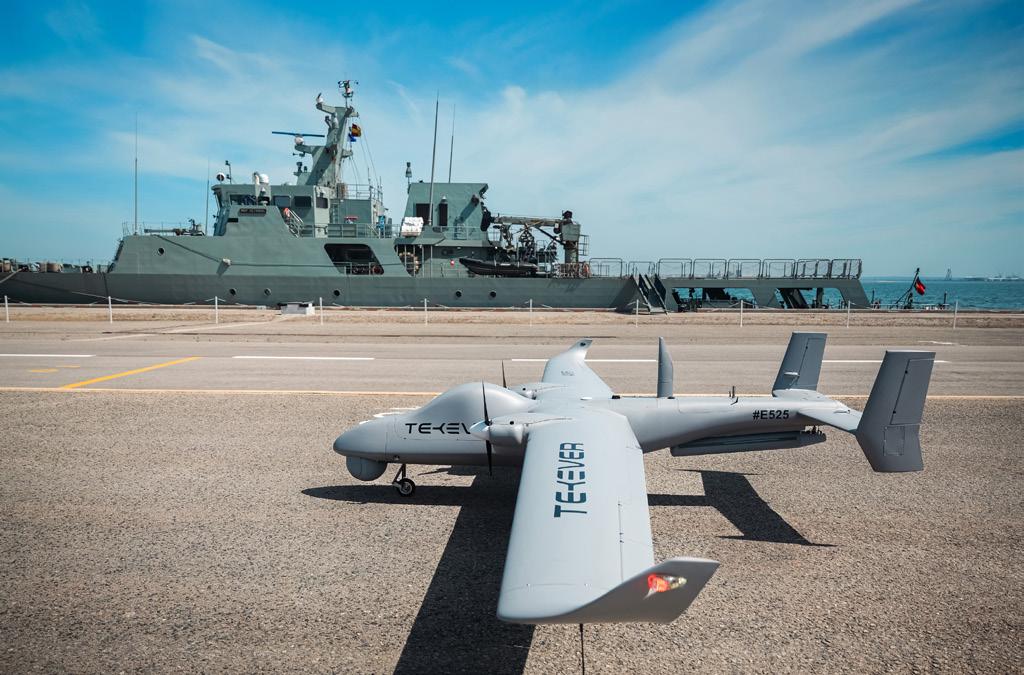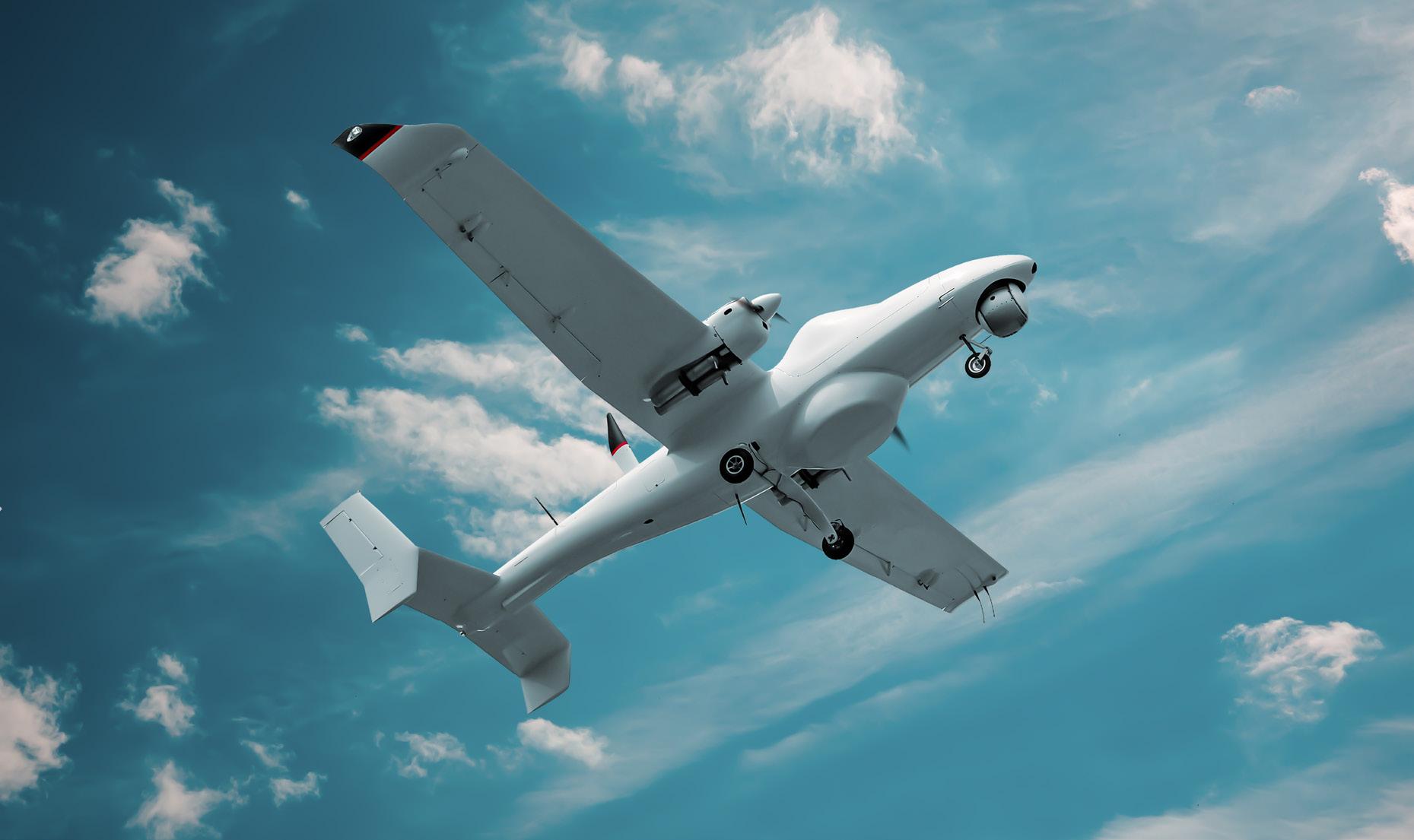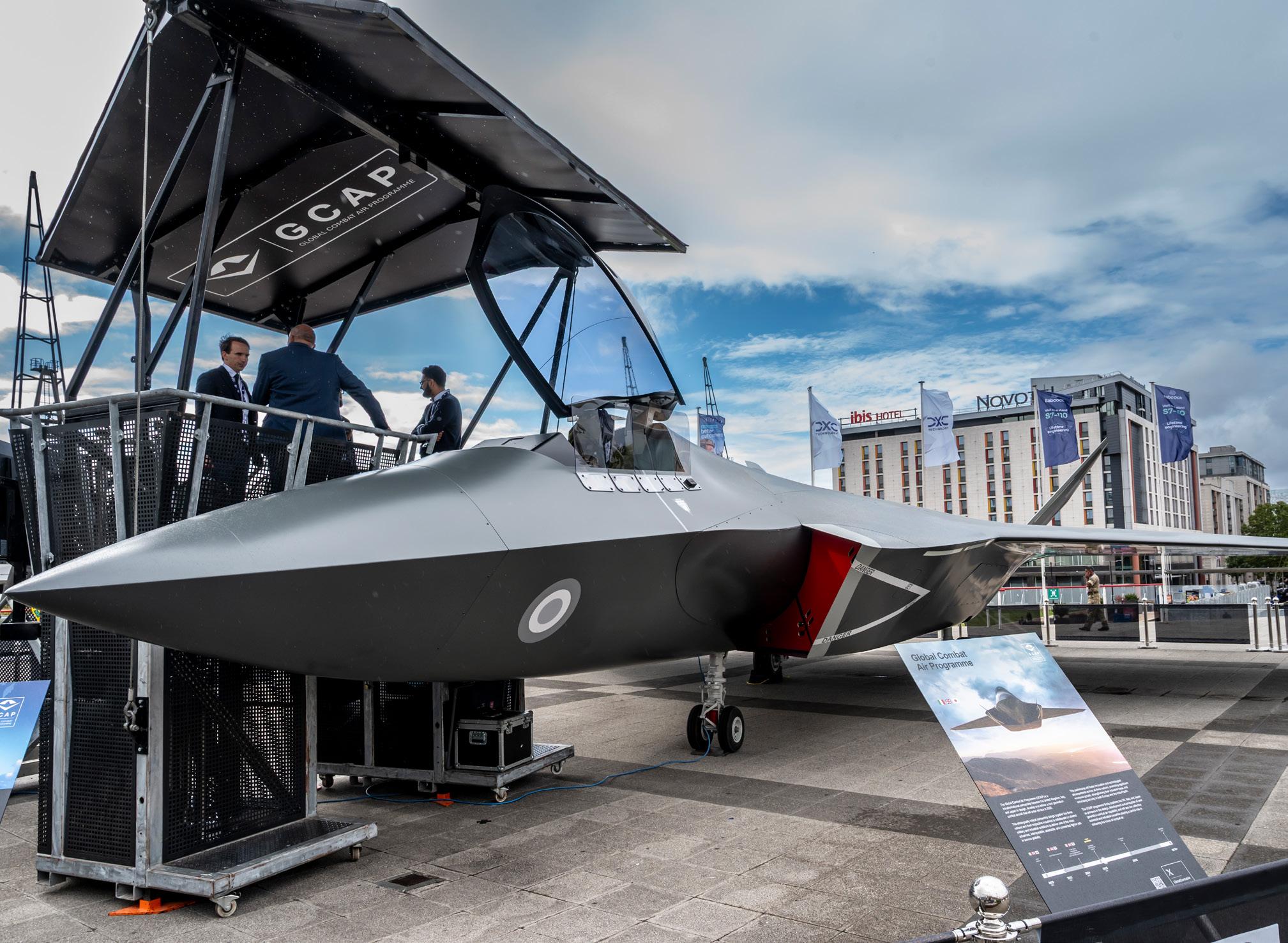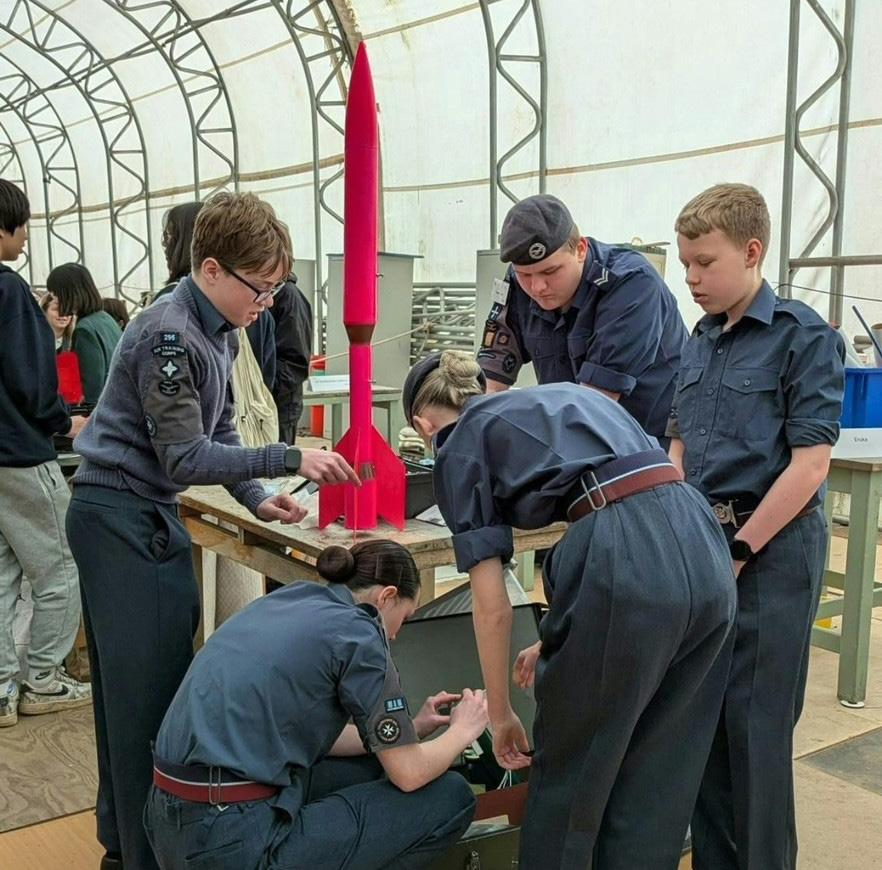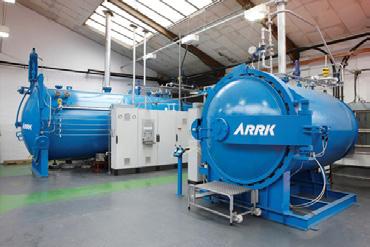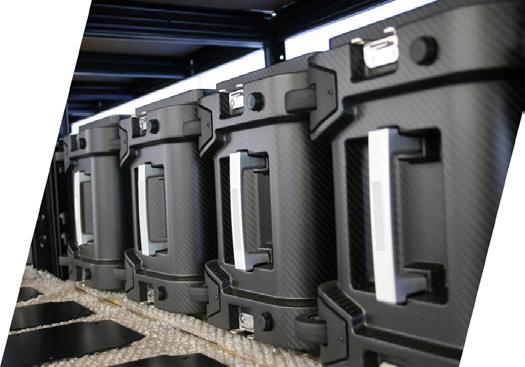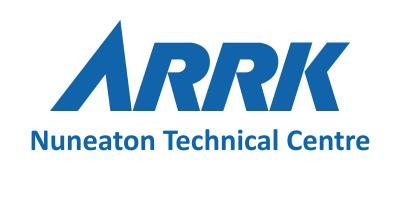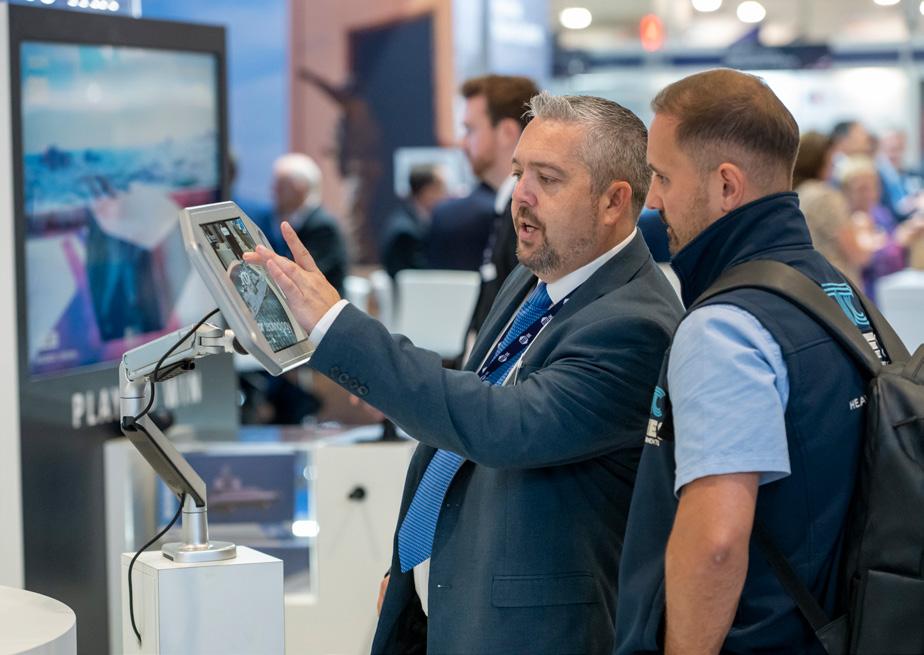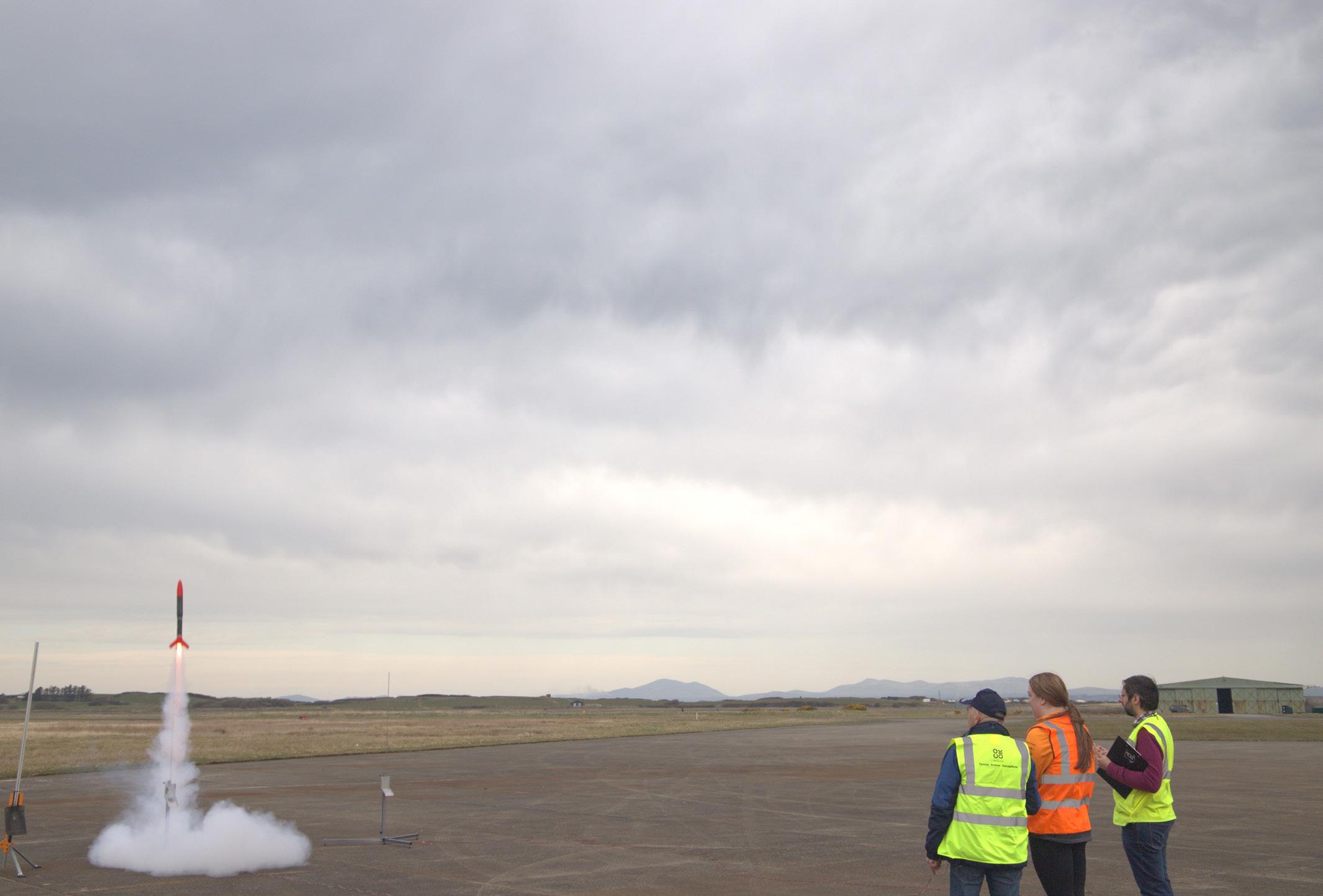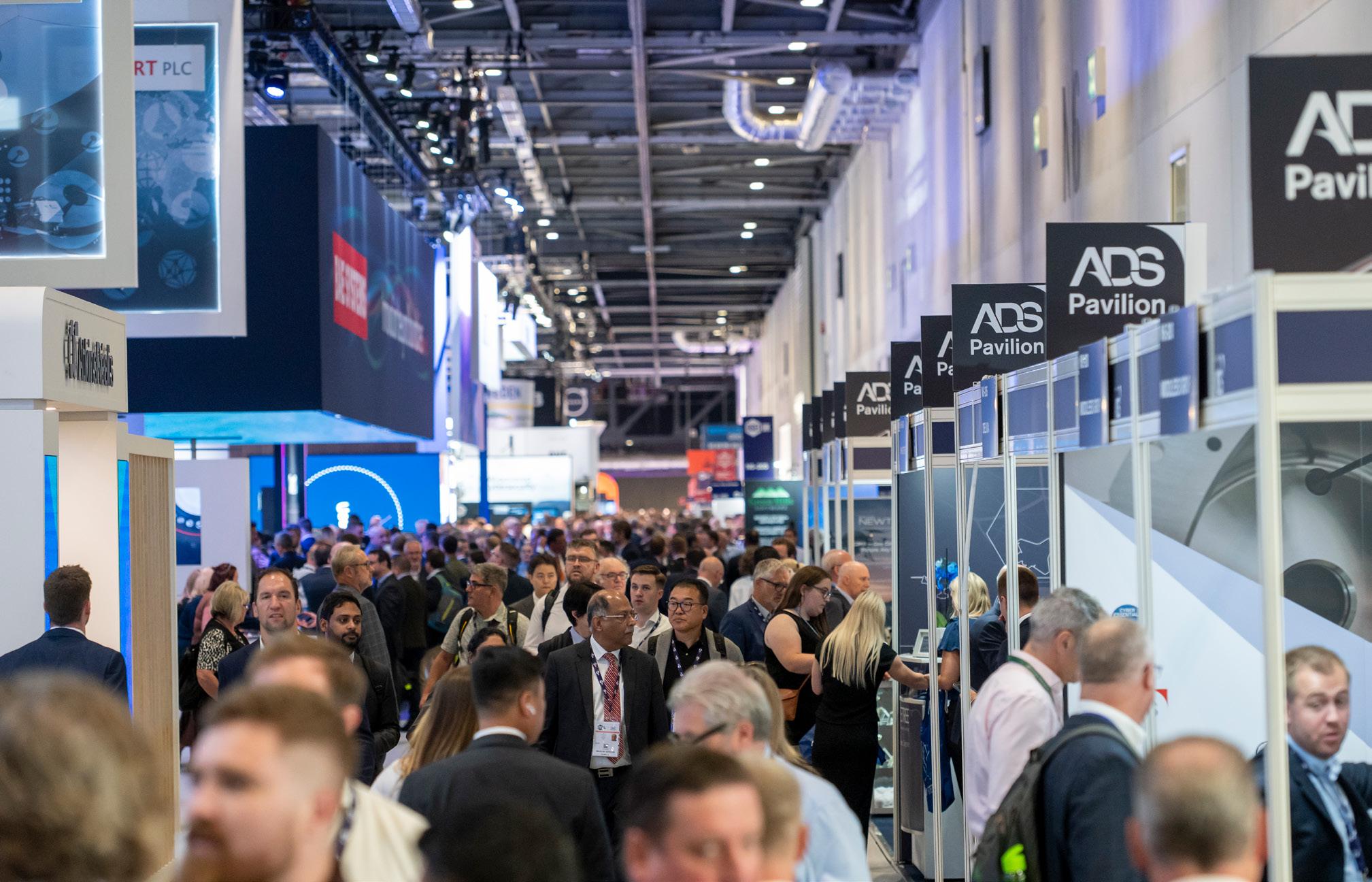SPOTLIGHT ON UK AEROSPACE, DEFENCE, SECURITY AND SPACE
We explore the pivotal roles of the UK aerospace, defence, security, and space sectors in driving economic growth, innovation, and national security. These industries stand at the forefront of advancing technology and strategic capabilities, all whilst navigating the complexities of global competition and an ever-evolving regulatory landscape
Writer: Rachel Carr | Project Manager: Deane Anderton
The aerospace, defence, security, and space sectors are not just vital components of the national economy – they are gateways to innovation and progress, shaping the future of global markets.
By fostering collaboration, the UK aims to strengthen its position in these interconnected industries on the international stage.
Contributing to the country’s strategic and technological development, economic prosperity, and vital security needs, these sectors provide opportunities for employment and digital transformation with increased collaboration between industry and government, paving the way for a bold and thriving future.
However, these industries also face challenges, including global competition, access to funding, shifting geopolitical priorities, as well as regulatory and procurement barriers that are limiting the sectors’ ability to scale up and deliver.
Addressing these challenges is crucial for maintaining the UK’s competitive edge and ensuring continued growth and development.
Aerospace, defence, security, and space are the industrial bedrock of the UK, with their value to the economy continually soaring.
With the second-largest aerospace industry in the world after the US, the UK is recognised for its innovation and high-quality manufacturing.
Key areas include the design and production of commercial and military aircraft, spacecraft, and related systems, with a focus on engineering and R&D.
The UK defence industry is equally important as it ensures national security and maintains international stability. It covers a wide range of areas, including land, naval, and air defence systems, and offers a diverse array of solutions ranging from fighter jets to cybersecurity. As a result, the government heavily invests in advanced technologies and weapon systems to enhance military capabilities.
The sector is also an essential player in NATO operations, with the UK being one of the largest military spenders in Europe.
The UK has faced serious threats from cyberattacks and information manipulation in recent years, leading to an important decision by the government to raise defence spending.
At the same time, the UK’s security sector is dedicated to protecting national interests through a combination of physical security measures, cybersecurity, and intelligence capabilities. This field has been expanding rapidly due to increasing digital threats and the need for effective identity management systems.
Companies are increasingly developing technologies in surveillance, biometrics, and information security, whilst the UK hosts events like the Security & Policing exhibition, showcasing the latest innovations in the security sector.
Additionally, the UK space industry has grown significantly in recent years, with aspirations to become one of the leading space nations.
The government has also set ambitious goals for launching small satellites and developing a commercial space launch capability.
The UK aerospace, defence, security, and space sectors therefore not only play a crucial role in the nation’s economic framework but also inspire and prepare the next generation of innovators.
Built for speed, designed for the mission: TEKEVER’s blueprint for AI-centric autonomous systems in Europe
A new model for European uncrewed systems
Across Europe, organisations in fields as varied as security, environmental monitoring, and defence face the same challenge: adapt quickly or risk falling behind. Traditional development cycles measured in years no longer keep pace with the speed of events. Today’s missions demand systems that can be fielded, tested, and refined in real time.
This is the environment in which TEKEVER has become Europe’s leading pan-European provider of AI-centric autonomy. Its position is defined not simply by size, but by a fully vertically integrated model, proven operational experience, and a culture of relentless optimisation.
Operating across aerospace engineering, propulsion systems, avionics, resilient communications, advanced payloads, software, data science, and AI, TEKEVER is far more than a UAV manufacturer - it is a technology enterprise capable of designing, building, and supporting complete, end-to-end systems. From uncrewed aerial platforms to mission software, from intelligence-as-a-service to complex electronic warfare, the company’s goal is clear: to
deliver actionable intelligence to operators at speed and at scale.
As Ricardo Mendes, TEKEVER’s CEO, puts it: “Innovation driven by real operational needs is the only innovation that matters. We don’t wait for a requirement to be written; we respond to what’s happening in the field.”
A trusted European partner with a proven track record
TEKEVER’s systems are deployed by frontline agencies, trusted by governments, and recognised for delivering results in the most demanding environments. Over the last decade, the company has become a familiar presence in European missions: from search-and-rescue in the Mediterranean to persistent coastal surveillance along the Atlantic, and from border security to environmental protection and biodiversity monitoring.
This blend of defence, security, and societal missions underscores TEKEVER’s resilience and versatility as a European partner committed to sovereignty and technological independence.
AR3 Evolution – learning at the speed of conflict
The AR3 Evolution epitomises TEKEVER’s philosophy of AI-driven, operator-centred design. Shaped by continuous operational use, most notably in Ukraine, the system has accumulated more than 10,000 flight hours and undergone over 100 design iterations. Each improvement – whether extending endurance, hardening against electronic warfare, or reducing reconfiguration time – has been forged in real operations.
Beyond conflict, the AR3 has been invaluable in civilian missions: wildfire prevention in Canada, coastal monitoring in Portugal, and conservation efforts across Europe. Its adaptability reflects TEKEVER’s commitment to AI-enabled autonomy designed for both contested battlefields and humanitarian challenges
AR5 – Europe’s first UAS-based maritime surveillance system
The AR5 extends TEKEVER’s leadership as Europe’s most advanced medium-altitude, medium-endurance platform.
Operating over the English Channel since 2019, it supports UK authorities in tackling illegal trafficking and safeguarding lives. “Every day, dozens of asylum seekers and refugees set off on the dangerous journey across the English Channel… Drones can identify humans in distress in a much faster way and help rescue teams,” explains Paul Webb, TEKEVER UK Managing Director.
With more than 12 hours’ endurance and a payload suite including maritime radar, SAR, EO/IR cameras, AIS and EPIRB receivers, the AR5 can cover vast areas, detect and track vessels, and provide real-time, highly accurate intelligence. It has already proven its worth in humanitarian missions, such as search-and-rescue in the Mediterranean, whilst also contributing to environmental monitoring like whale detection in the Pelagos Sanctuary.
Complementing it, the AR3 – with its 16-hour endurance, flexible payloads, and minimal logistics footprint – is ideal for tactical scenarios. Launched from mobile catapults and recovered by parachute or net, it creates a responsive layer alongside AR5 operations, maximising coverage and adaptability.
Digital first: From data to decision
If TEKEVER’s platforms provide the eyes and ears, its digital and AI backbone provides the brain. Data is ingested, fused, and transformed into actionable intelligence at speed, reducing cognitive load and accelerating decisionmaking.
This approach reflects TEKEVER’s origins as a software company: drones as “computers with wings”, designed from the outset to run applications, process data, and evolve rapidly. That philosophy still drives the company’s four business areas, ensuring that digital innovation enables every mission.
Investing in Europe’s future
TEKEVER’s commitment to Europe is tangible. The company has announced a £400 million investment in the UK over the next five years, creating more than 1,000 highly skilled jobs whilst reinforcing sovereign industrial capability.
A flagship programme enabled by this investment is StormShroud, a next-generation electronic warfare initiative under the Force’s (RAF) Autonomous Collaborative Platforms programme. At its core is the TEKEVER AR3, delivering agile, uncrewed capability to enhance the survivability of RAF combat aircraft. Equipped with Leonardo UK’s BriteStorm payload, the system is capable of disrupting enemy radar and enabling precision effects without exposing crewed aircraft to risk.
By combining a battle-proven tactical platform with advanced mission-specific payloads, TEKEVER has provided the RAF with a new electronic warfare capability in under six months. This achievement illustrates how AI-centric autonomy, European collaboration, and vertical integration can accelerate delivery of cutting-edge defence innovation.
People and culture
Behind TEKEVER’s achievements is a workforce of nearly 1,000, spread across cutting-edge facilities in the UK, Portugal, France, and Ukraine. Multidisciplinary teams bring together aerospace engineers, AI specialists, mission operators, and field technicians – united by a culture that values experimentation, rapid learning, and delivery.
As Mendes emphasises: “We want builders – people who are inquisitive, who want to experiment, learn, and deliver again. That is the culture that allows us to innovate at speed.”
Looking ahead
TEKEVER’s ambitions go beyond airborne ISR. The company is investing in space-based sensing and communications, digital twins, and AI-enabled autonomy that reduces operator workload whilst keeping humans firmly in the loop.
Ultimately, TEKEVER is a European company built on sovereignty, innovation, and scale. It delivers autonomy centred on AI, end-to-end integration, and operational relevance. Its systems are already saving lives, protecting borders, and advancing scientific knowledge – embodying a European vision of autonomous technology fit for today’s challenges and tomorrow’s missions.
https://www.tekever.com/
Aerospace, defence, security, and space are now priority industries for the UK, which is an excellent win for ADS and our members. One thing we’re trying to ensure is that our members are informed and enabled to access those funding opportunities where possible.
There are over 30 percent more people working in our sectors compared to 2014. Albeit slowly, we are seeing pathways and opportunities being created, and we want to continue growing this workforce in the UK.
We can’t ignore the fact that companies need to be more efficient and smarter in the way they operate, however
“WE HAVE AN INTERNATIONAL FOCUS, SO ACCESS TO GLOBAL BUSINESS DEVELOPMENT SUPPORT AND COLLABORATIVE OPPORTUNITIES IS SOMETHING WE’RE VERY FOCUSED ON”
– ASHLEY GASSON, DIRECTOR OF MEMBERSHIP AND COMMUNICATIONS, ADS GROUP
we’re really excited about the investments coming in and enabling our workforces to increase their productivity and meet this unprecedented demand.
From our perspective, whilst we’ve had an incredible 12 months, we’re not complacent – there is always the next challenge or global issue that we must deal with, so ADS is always moving forward.
I like to think that we’re always at the forefront of what’s required of us and our members.
EO: Can you share some key objectives that ADS has achieved in the last year? What successes are you most proud of?
AG: When I look at the trends from a membership perspective, we’ve had about 42 percent growth in the last three years.
That’s a strong message indicating trust in ADS from our members, and we are definitely committed to supporting and delivering for these businesses.
By providing our members with business development support and access to supply chain opportunities, we’ve really enhanced our service offering. We have a very strong business development team and are always looking to
UK YOUTH ROCKETRY CHALLENGE
Organised by ADS, the UK Youth Rocketry Challenge (UKROC) is an exciting initiative that allows the industry to invest in the next generation of engineers. Designed to provide practical experience in building and executing complex missions, this challenge targets students aged 11 to 18 from secondary schools, colleges, educational institutions, or youth groups, offering them the opportunity to build a rocket.
The rocket must ascend to a target altitude and flight duration whilst following specific rules, which change annually to inspire innovation and new approaches to design. The goal is for the rocket to successfully carry a fragile payload – two raw eggs –which must return to Earth intact.
This year was the largest and most geographically diverse edition of UKROC to date – incredibly, more than 166 teams from over 85 schools registered to take part.
Given the demand from the number of teams looking to take part, for the first time this year, ADS has launched a Welsh regional heat, effectively meaning the whole UK is participating in the challenge.
As STEM skills shortages continue to blight the UK economy, it’s an exciting way for young people to upskill themselves, working on complicated mathematical equations and applying their knowledge of science and technology.
Following the best-attended competition in its nearly 20-year history, the 2026 International Final will be held at the prestigious Farnborough International Airshow, where UK national winners will have the opportunity to compete against teams from France, the US, and Japan.
COMPOSITES, ENGINEERING AND MANUFACTURING SOLUTIONS
ARRK Nuneaton Technical Centre leans into vertical integration by delivering endto-end engineering solutions for defence and advanced manufacturing.
Our autoclave and oven curing, Icorr Level 2-certified coatings, and clean room facilities ensure high-quality, durable components.
With over 60 years of expertise, we manage every stage of product realisation, from precision tooling and CNCmachined patterns to composite manufacturing using glass fibre, aramid, and Phenolics.
Large-scale CNC machining and metrology support demanding prototypes and low-volume production.
Trusted by OEMs and Tier suppliers, ARRK offers a fully integrated, highperformance manufacturing partner.
Our experienced project management team coordinates seamlessly across disciplines, reducing lead times and enhancing reliability.
improve the quality of our 200+ events.
That’s the one priority across our SME community as they want to be able to utilise ADS to access new business development opportunities across our sectors.
To reinforce our position, this year is on track to be our most successful to date. We’ve already welcomed 300 new members this year alone, which is a significant milestone, and will most likely end up with a total of over 1,700 members by December.
Whilst our membership numbers are great, I would stress that we are very much focused on a retention-first policy. All our efforts go into improving our retention rate, which is stable and above the national average – we’re very proud of that.
However, there’s always more to do, and we’ve continually sought to ensure that we’re improving that rate organically, because we want our members to understand the value of being an ADS member.
Returning to the business development element, we held over 120 separate member events last year, including exhibitions, external events that we’re supporting, industry briefings, and 650 Meet the Buyer sessions.
We’re definitely on the right path; everything’s moving in the right direction because we’re not complacent and there’s always more to do.
EO: How have government policies affected the industry, and what changes have you had to make in response?
AG: Most notably, the recent Industrial Strategy, launched a few months ago by the UK government, provides a comprehensive and long-term plan for our sectors.
We are very grateful for that; our policy team worked tirelessly to collect the views of our members and feed them to the government to ensure our industry’s voice is heard.
As part of the Industrial Strategy, a 10-year budget has been allocated for the Aerospace Technology Institute, with which we work very closely. It also includes support for high industrial energy costs, which remains a key focus for our industries and poses a challenge to manage.
Additionally, there is a strong emphasis on upskilling and reskilling our workforce.
We are committed to supporting efforts to upskill and reskill our workforce and implementing interventions to boost access to finance, which has been a persistent issue.
EO: What new initiatives has ADS launched recently, and what goals do you hope to achieve with them?
AG: As ADS is the national trade body for our industries, we represent companies from across the whole of the UK.
We also have regional offices and teams in Northern Ireland and Scotland. Having listened to our members’ views and extracted some feedback from our biennial survey, it was apparent that they wanted ADS to have a greater presence throughout the UK.
ADS has created a new initiative called Engage – a series of activities and events designed to foster growth within the UK’s advanced manufacturing sectors. This takes ADS on the road to deliver core member value engagements across the country.
We’ve covered the southwest, Leeds, and the Midlands,
and Manchester and Cardiff are coming up soon as well – we’re really trying to ensure ADS is visible across the entire breadth of the UK. Those events are particularly well attended, and on average, we often see hundreds of our members attend.
Depending on who is hosting us, space may be limited, but the launch of the Engage series has been hugely encouraging, as many members have attended and they seem to greatly appreciate the chance to connect with us.
Security & Policing is a flagship event for ADS, and we are proud to deliver it on behalf of the UK Home Office.
This year, Security & Policing was a record-breaking event, with a 10 percent rise in visitor numbers and 180 international delegations. We felt these figures and our efforts have effectively reinforced the role of ADS within the security and resilience sector, making us a trusted partner in global security collaboration.
The number of exhibitors was also at its highest in the event’s 40-year history, with over 400 attending. We effectively ran out of room in the exhibition hall, so now we are looking at how we can expand that for 2026.
EO: Finally, what support or resources does ADS offer to its members to help them adapt to changing industry dynamics?
AG: We work with a large number of organisations, partners, and supporting bodies, operating a collaborative approach to helping our sectors.
Although we believe ADS excels in its work, there are always opportunities for collaboration with our partners. The ultimate goal is to ensure the success of the companies operating in our sectors.
We want to help our members understand the value of being an ADS member, and collaboration is definitely key to that. Whether it’s representing industry or driving innovation forward, I would say we are at the forefront of these activities.
For example, we’re at the heart of the joint industrygovernment growth partnerships which are shaping our sectors. Our primary role is to represent the interests of our members and encourage their participation in various initiatives that stem from this collaboration.
We are committed to ensuring our presence in government initiatives, acting as the voice of our members whilst also considering a global perspective.
We have an international focus, so access to global business development support and collaborative opportunities is something we’re very focused on. Currently, we have collaboration agreements with
19 international trade associations similar to ADS. We manage numerous UK pavilions on behalf of the Department for Business and Trade at national and international exhibitions, and I like to believe we act as a convener of members, industry, and government stakeholders.
Therefore, we can create an active network of participants to further support and empower the aerospace, defence, security, and space sectors whilst influencing business overseas.
We’re actively at the table engaging in discussions, the international growth of our organisation is rapidly expanding, and many exciting developments are taking place. As our membership continues to grow, our challenge is to ensure all members are kept informed.
comms@adsgroup.org.uk www.adsgroup.org.uk
comms@adsgroup.org.uk www.adsgroup.org.uk
